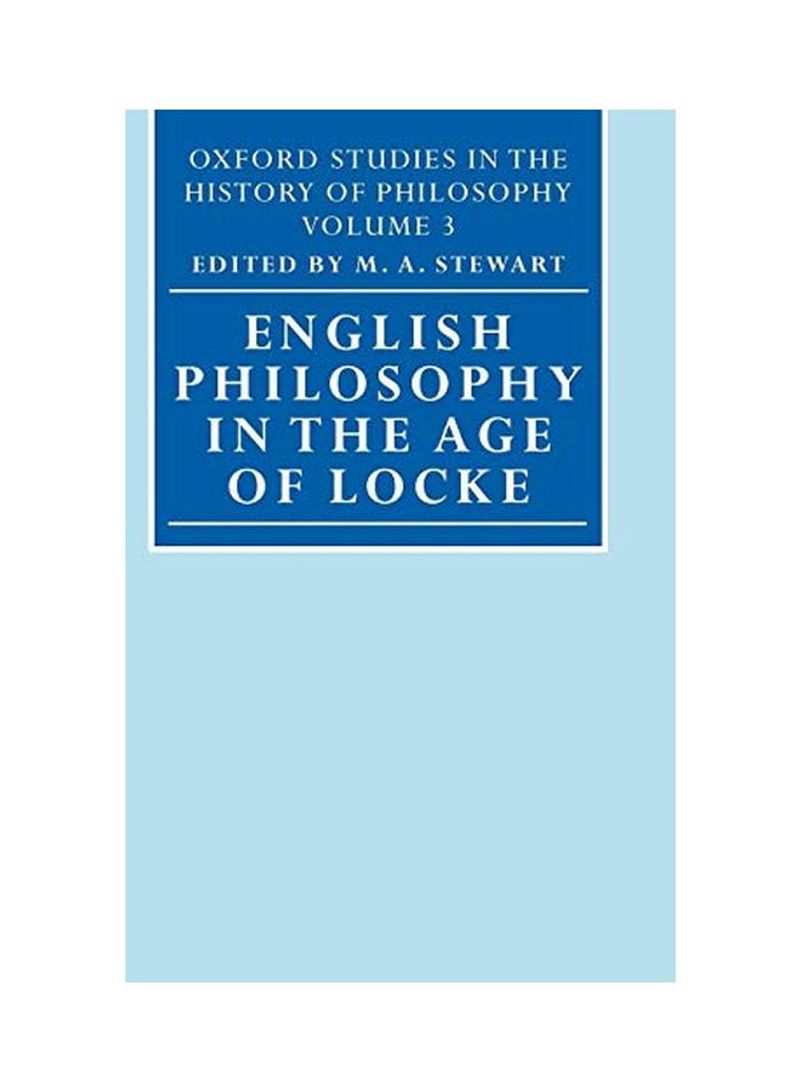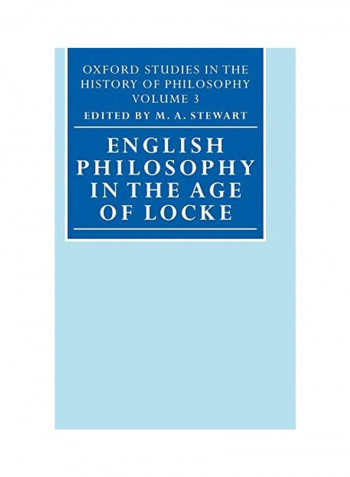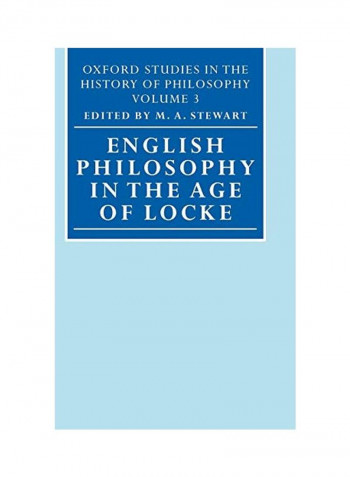English Philosophy in the Age of Locke Hardcover
Recommend
Sort by
Rating
Date
Specifications
Author 1
M. A. Stewart
Book Description
English Philosophy in the Age of Locke presents a set of new essays investigating key issues in English philosophical, political, and religious thought in the second half of the seventeenth century. Particular emphasis is given to the interaction between philosophy and religion in the leading political thinkers of the period, and connections between philosophical debate on personhood, certainty, and the foundations of faith, and new conceptions of biblical exegesis. Paul Dumouchel examines church-state relations from the viewpoint of Hobbes's political theory. Knud Haakonssen explores the basis of obligation in Cumberland's theory of natural law, and Ian Harris the relation of Locke's account of justice to his theory of rights, each tracing his subject's distinctive views to a particular conception of God's design. John Milton reappraises the documentary evidence for Locke's reading of Gassendi. The theology of the Unitarian Controversy and Locke's relation to both Socinian and non-Socinian writers are explored at length by John Marshal. Victor Nuovo places the Socinian debate itself in a broader context of Locke's lifelong concern to view all history and knowledge within a theocentric perspective to which the key was sound scriptural exegesis and a rationally founded faith. Udo Thiel's analysis of the personal identity debate among English theologians like Sherlock and South provides the philosophical context for Locke's place in these debates. M. A. Stewart investigates the philosophical background to Edward Stillingfleet's attacks on Locke; and Beverley Southgate explores the place of John Sergeant in the backlash against scepticism precipitated by some of the philosophical trends of the day.
Language
English
Publisher
OUP Oxford



